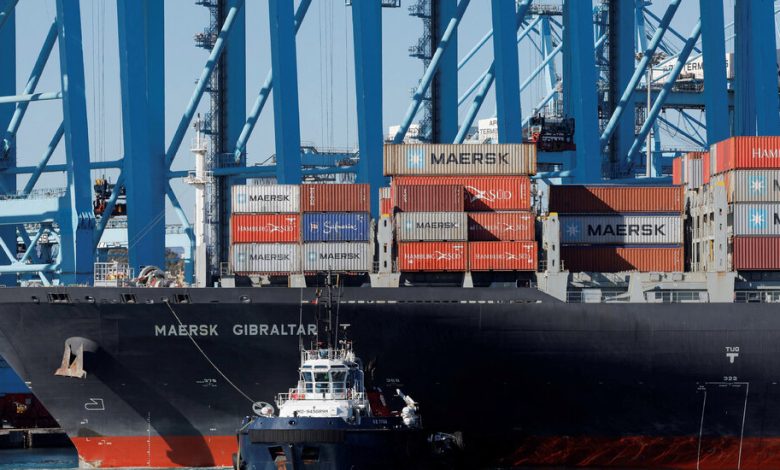Shipping Giant Maersk Is Returning to the Red Sea After Houthi Attacks

The shipping giant Maersk indicated on Wednesday that after avoiding the Red Sea and the Suez Canal for about a week because of attacks on shipping it was again directing its vessels through the canal.
The Iran-backed Houthi militia in Yemen has been attacking ships in the Red Sea, saying they are retaliating against Israel’s military actions against Hamas in Gaza. A U.S.-led naval force has been assembled to defend vessels in the Red Sea and warships already there have prevented attacks on ships.
A shipping advisory that Maersk released on Wednesday showed several of its vessels were headed for the Suez Canal, which handles about 12 percent of world trade.
“We continue to prepare our vessels for passage through the Red Sea, and any deviation from this decision will be looked at on a case-by-case basis,” Maersk said in a statement.
The attacks near the Suez Canal have been disrupting global shipping at a time when fewer vessels can pass through the Panama Canal because of a drought. After the Houthi attacks, shipping rates jumped, and maritime companies, seeking to avoid the Red Sea, routed their vessels around the Cape of Good Hope, adding costs and creating delays.
Hapag-Lloyd, a large German shipping company, was still avoiding the Red Sea, its spokesman said on Wednesday. MSC, a Switzerland-based shipping company, said that one of its vessels had been attacked on Tuesday but that no injuries had been reported.
“Our first priority remains protecting the lives and safety of our seafarers, and until their safety can be ensured MSC will continue to reroute vessels booked for Suez transit via the Cape of Good Hope,” the company said in a news release.
Many carriers, including Evergreen, Hapag-Lloyd, MSC and Maersk, had rerouted ships around Africa, imposing container surcharges for some shipments to cover the extra cost.
Shipping tracking websites show many ships now traveling through the Red Sea, including oil tankers.
More than 400 cargo ships have been sent on the 6,000-nautical-mile detour, which effectively reduces the capacity of Asia-to-Europe trade by 25 percent, said analysts at UBS.
Brooks Barnes contributed reporting.
